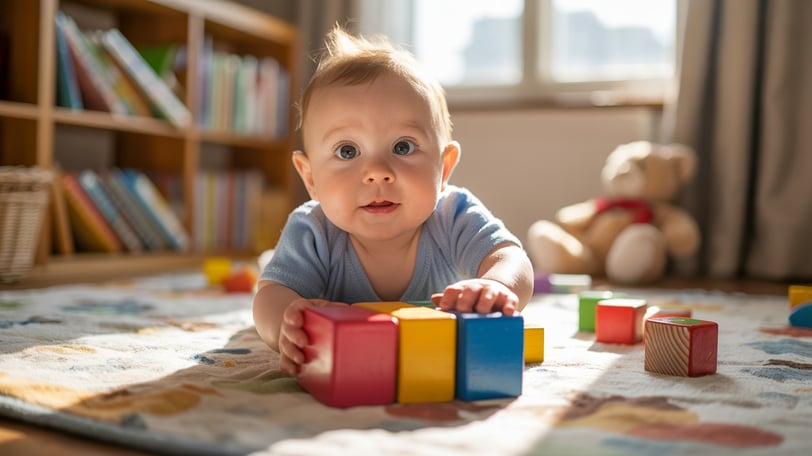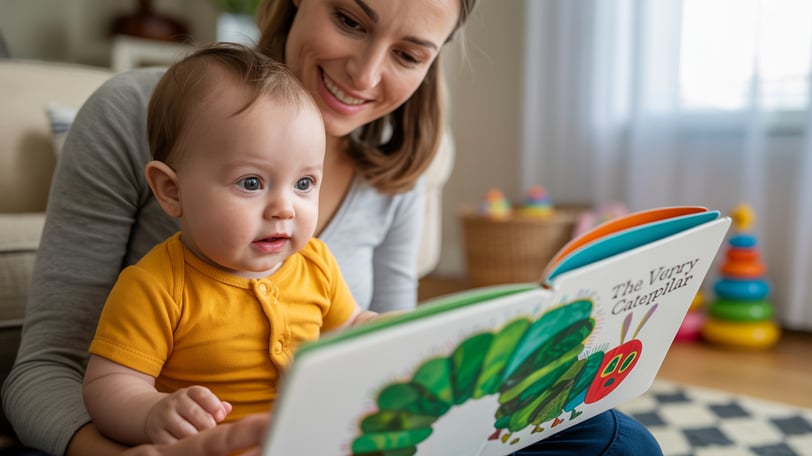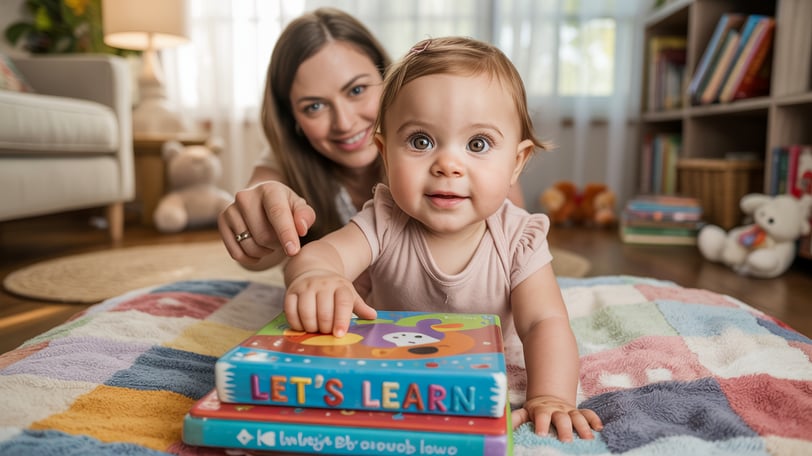Baby’s First Words: Encouraging Language Development
Discover sensory play activity ideas that support baby’s development and encourage baby’s first words through fun, interactive, brain-boosting play for early learning success.


Language development in babies is an exciting milestone for parents. Those first words are not only adorable but also signify significant cognitive and communicative progress. Understanding how to encourage and support your baby’s language development can make a profound difference in their early years. In this comprehensive guide, we explore effective strategies and tips to help your baby start talking.


The Importance of Early Language Development
From babbling to forming coherent words, babies go through a remarkable journey in their early years. Language development is crucial as it lays the foundation for communication skills, social interactions, and even cognitive abilities. Research shows that babies who engage in language-rich environments tend to have better literacy skills later in life.
Signs of Language Readiness
Before babies utter their first words, they go through several stages of vocalization and communication readiness. Here are some signs that your baby may be ready to start talking:
Babbling: Babies typically start making repetitive sounds, such as "ba-ba" or "da-da," as early as 6 months.
Imitating Sounds: They may try to mimic sounds they hear, including simple words or animal noises.
Gesturing: Pointing, waving, and other gestures are early forms of communication that indicate their desire to interact.
Responding to Words: Babies may respond to familiar words or sounds by smiling, looking at you, or babbling back.


Strategies to Encourage Baby’s First Words
1. Talk to Your Baby
Engage in constant verbal communication with your baby throughout the day. Describe what you're doing, name objects around them, and narrate daily activities. This exposure to language helps babies learn vocabulary and sentence structure.
2. Use Simple Words and Repetition
Repeat words and phrases frequently. For example, say "milk" every time you feed them or "sleepy time" when it's bedtime. Repetition helps reinforce vocabulary and concepts.
3. Read Together
Reading to your baby introduces them to different words, tones, and rhythms of language. Choose age-appropriate books with colorful pictures and simple texts. Point to pictures and name objects to enhance their understanding.
4. Sing Songs and Nursery Rhymes
Music captures babies' attention and helps with language acquisition. Sing nursery rhymes, lullabies, and simple songs with repetitive lyrics. Encourage your baby to clap, sway, or mimic hand movements.
5. Respond Promptly to Vocalizations
When your baby babbles or makes sounds, respond enthusiastically. Use facial expressions, gestures, and words to acknowledge their attempts at communication. This interaction encourages them to continue experimenting with language.
6. Limit Screen Time
Minimize exposure to screens and electronic devices, as they can reduce opportunities for face-to-face interaction and language development. Instead, focus on real-world interactions and activities.
7. Create Language-Rich Environments
Surround your baby with language-rich stimuli. Play with toys that make sounds or use picture books with simple words. Encourage family members and caregivers to interact verbally with your baby.


Common Challenges in Language Development
Some babies may experience delays in language development. It’s essential to recognize potential challenges and seek guidance from pediatricians or early intervention specialists if you notice:
Limited or no babbling by 12 months.
Difficulty understanding simple instructions or responding to their name.
Lack of interest in making sounds or imitating gestures.
Early intervention can significantly improve outcomes for babies with language delays.
Encouraging your baby’s first words is a rewarding journey that requires patience, consistency, and a nurturing environment. By talking, reading, singing, and responding to your baby's vocalizations, you play a vital role in their language development. Remember that every baby progresses at their own pace, so celebrate each milestone along the way. With these strategies and tips, you can help set the stage for your baby’s lifelong journey with language and communication.
